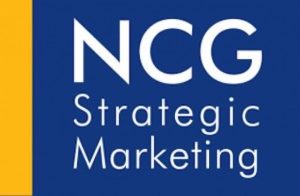“There are no second acts in American lives.”
– F. Scott Fitzgerald
“As you get older, it is harder to have heroes, but it is sort of necessary.”
– Ernest Hemingway
Who are your heroes?
I’m a firm believer that heroes are not just for kids. Everyone should have heroes – and the more, the better. All of us need that inspiration they can provide, whether our hero is a decorated war veteran, a champion basketball player, a boss, a parent or someone who has surmounted great odds in life.
So, let me tell you about one of my newest heroes. Her name is Libby James and a few weeks ago she ran the Bolder Boulder 10K in 49:19. That’s a 7:56 pace for 6.2 miles, which would be quite good for almost any of us, but did I mention that she’s 73 years old?
If you’re not a runner, it may not jump out at you just how amazing that is. Maybe this will help: She was the 822nd finisher out of 25,851 women of all ages. And just so you don’t have to do the math, that’s in the top four percent of all women finishers. At age 73.
And here’s the best part: Libby didn’t even take up running until she was 35, and she didn’t enter a race until she was 40. If that’s not impressive enough, Libby has won her age group every year since she was 46 (that is, for each of the last 27 years).
Now, obviously, with numbers like that, Libby must have something God-given that most of us do not. And yet, how easy would it have been for her to have never taken up running at 35? Or, perhaps worse, what if she had taken up running but had never made much of the fact that she could run really fast, faster than anyone she knew? What if she had not made the most of this gift? What if she had let her doubts and fears get the best of her?
And this touches on the many reasons why I admire Libby. She’s a great role model for being active in a country that’s overwhelmingly sedentary and increasingly obese at younger and younger ages. She’s an exceptional example of what those over the age of 70 can achieve. And she’s a wonderful case study of how someone can find an amazing talent in the second half of his or her life that wasn’t even visible in the first half.
In some ways, Libby reminds me of Susan Boyle. You remember, of course, the totally unknown singer from Scotland who sprung upon the world a year ago? She became a YouTube sensation and media star at age 48 after blowing away the judges and the audience on Britain’s Got Talent. Susan was well known in the town of Blackburn for having a good voice. But what if she’d resisted the call to use that talent beyond her small town to see where it could get her? For someone who was far from central casting’s conventional idea of what a best-selling singer looks like, she took quite a risk, didn’t she? Personal embarrassment on a grand scale, for starters. Yet, she ended up selling nine million copies of her CD in only six weeks, making it the best-selling album of 2009.
So, what can we learn from all this? Most importantly, don’t be afraid to take a risk, even a big one. Don’t let conventional wisdom slow you down, because if it ever was relevant to whether we follow our muse, it should be much less so today. What we think of as the conventional world, the one that shaped us as we grew up, is no longer the one in which we’re living and working.
Maybe you’re an attorney who’s thinking about leaving Big Law behind, and your dream is to have your own solo practice – and to make it successful and sustainable. What’s holding you back?
As you’ve undoubtedly heard, the skills needed to successfully market a law firm are very different from the ones needed to successfully practice law. Of course, being an excellent attorney is the essential first step, the sine qua non. But it’s not the only thing that matters, not anymore. As Marshall Goldsmith’s bestseller from a few years ago put it, “What Got You Here Won’t Get You There.”
Yet, if Susan Boyle can come out of nowhere at age 48 and sell nine million copies of her album, you can certainly make for yourself a solidly successful law practice. Will it be easy? No, but neither was law school or achieving what you already have. So, what’s getting in the way of your next success story? What are your doubts and fears?
Don’t let a commitment to conventional wisdom, risk aversion or fear of failure keep you from realizing your dreams.


